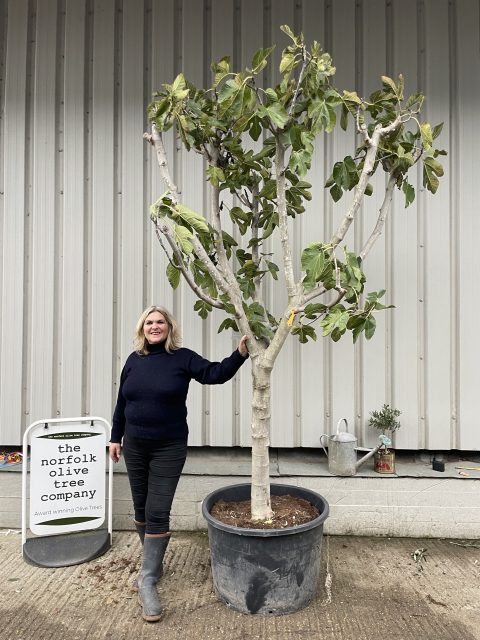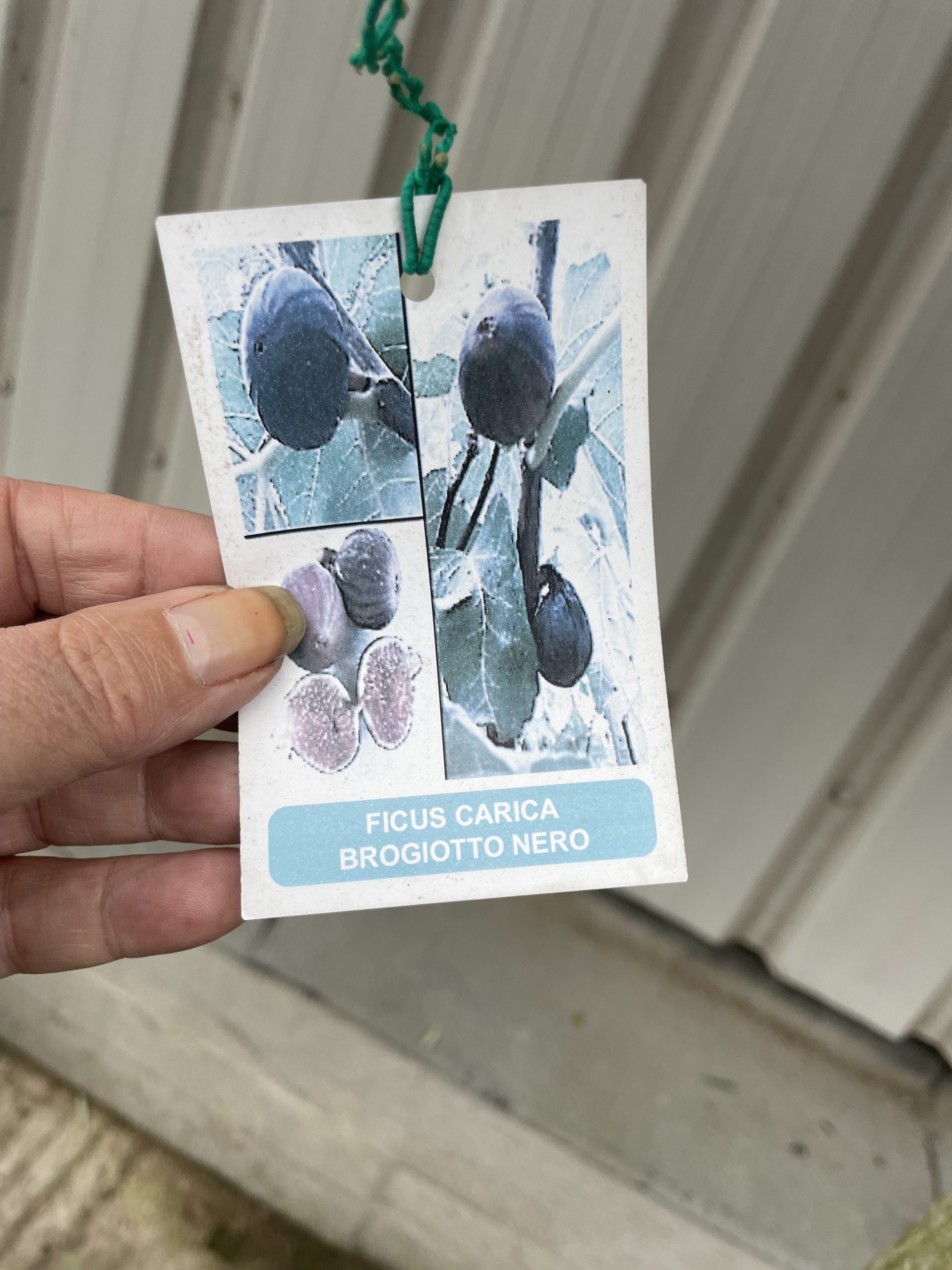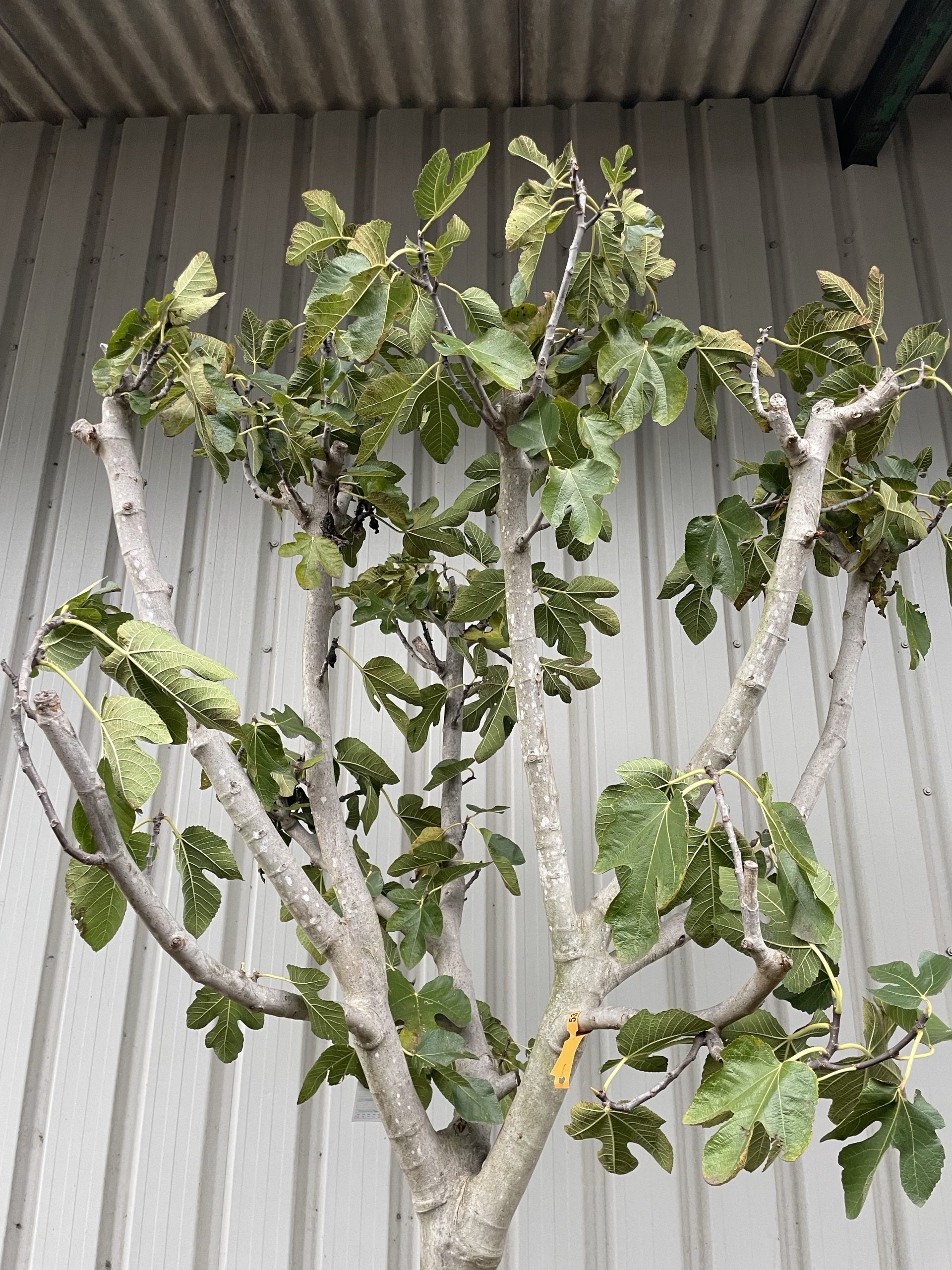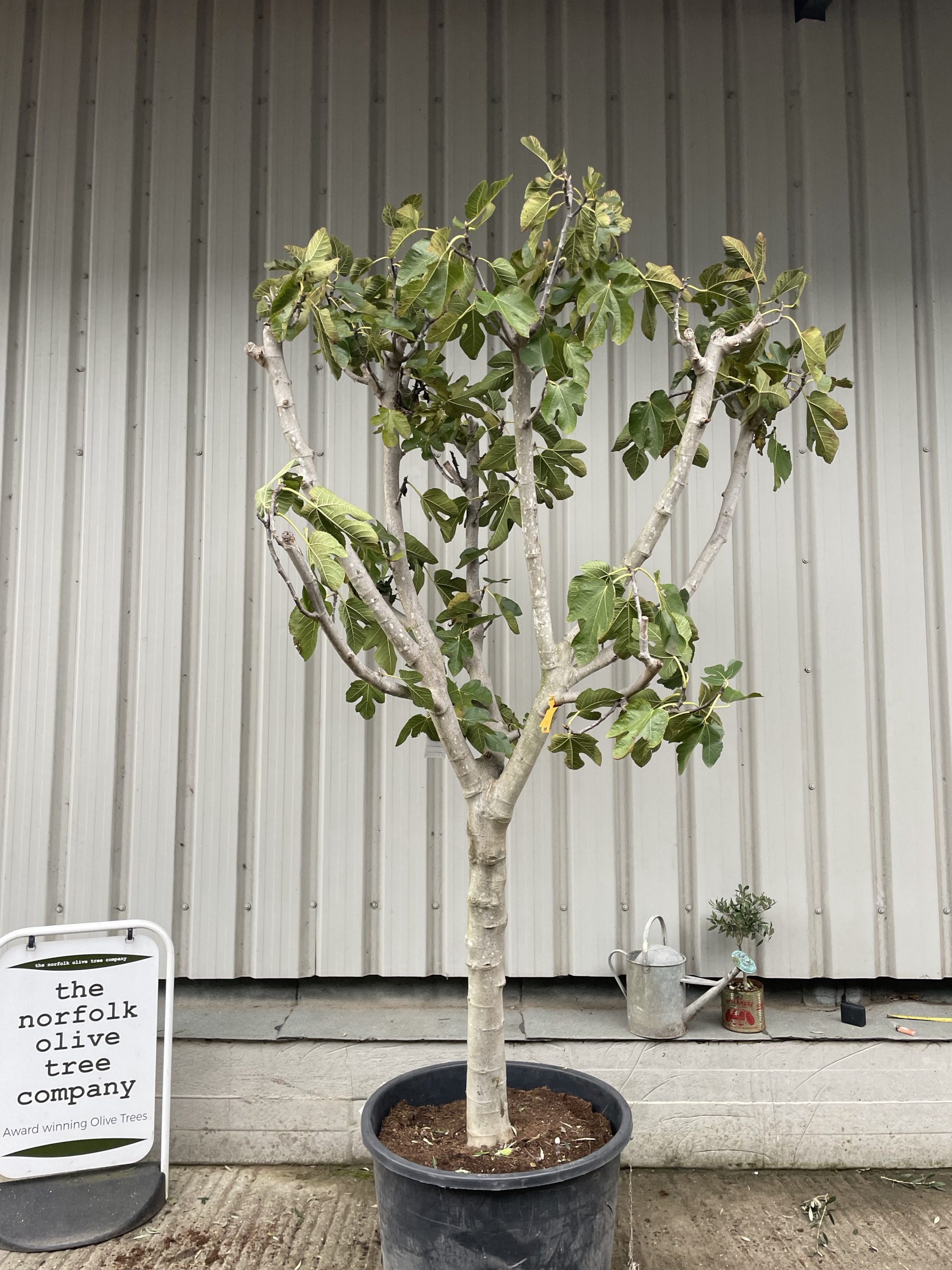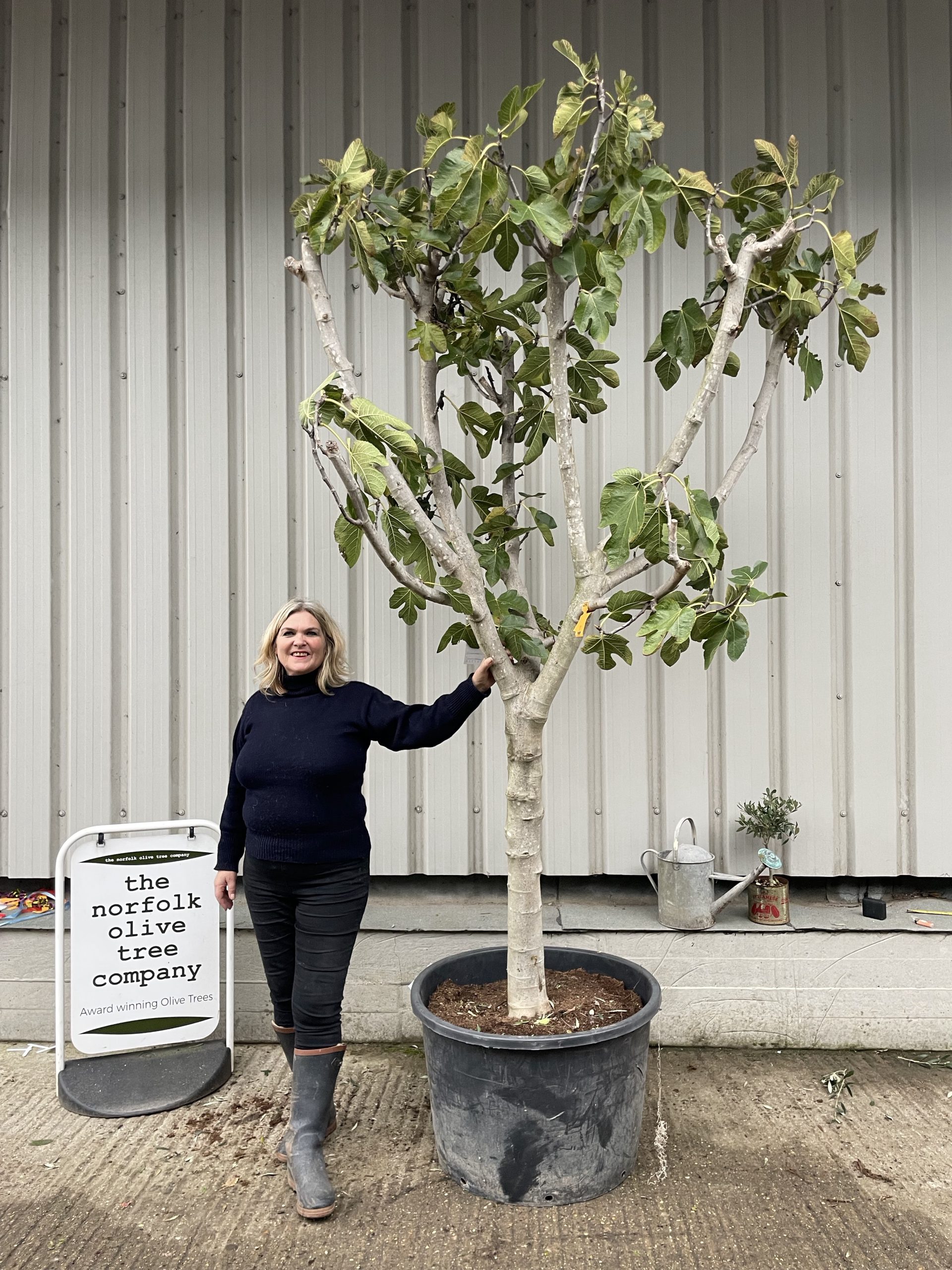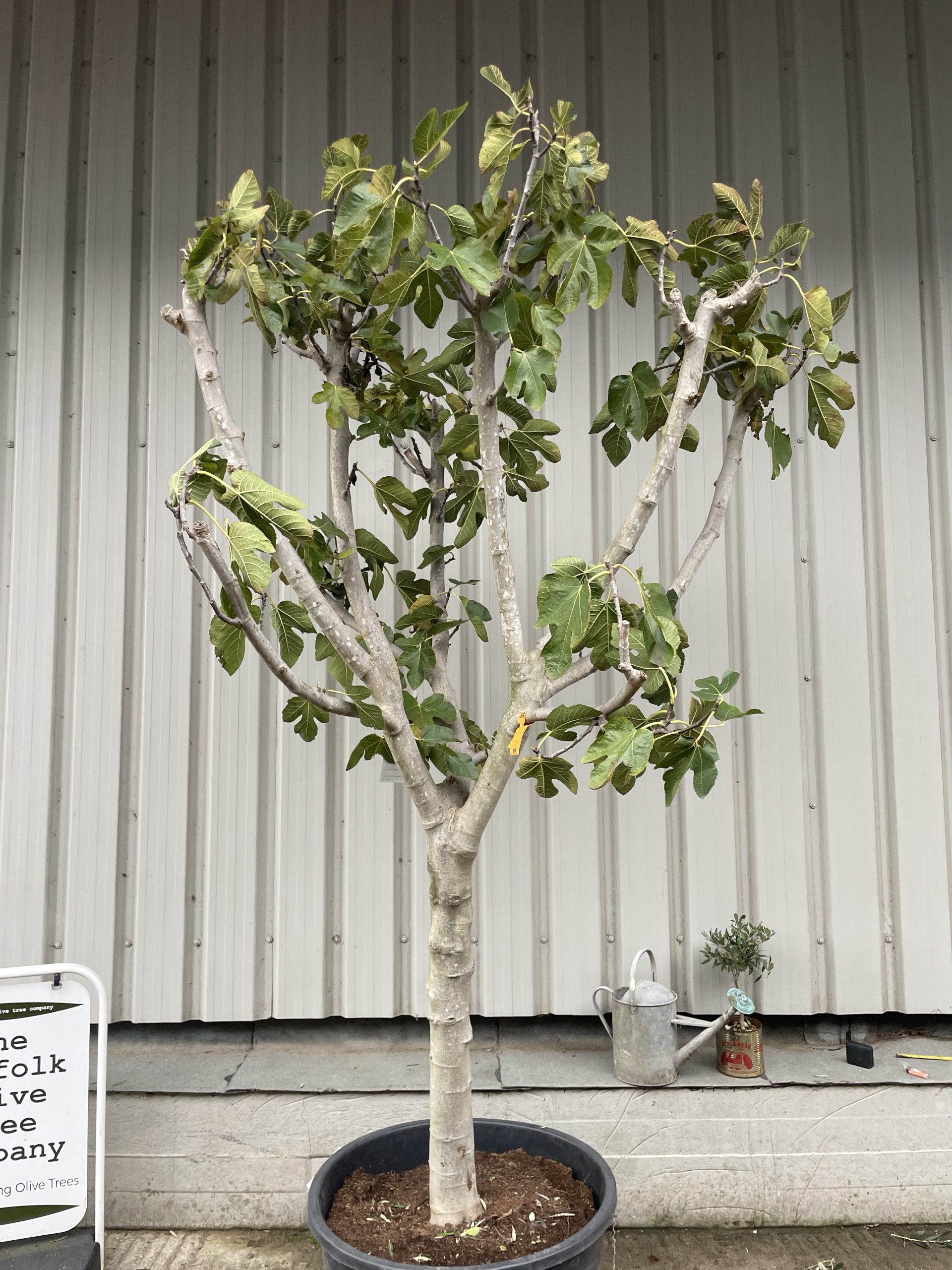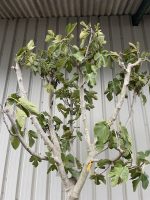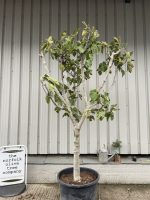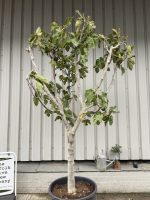Fig tree for sale. Charming specimen.
Fig tree in 180 litre pot.
Measurements
Height including pot 2 metres 95cm
Pot measures 75cm by 55cm depth.
Fig Trees, also known as Ficus Carica, is an Asian species of flowering plant in the mulberry family, known as the common fig. They are native to Syria and Persia and have a love for warmth! Our best advice is to trick them into thinking they’re still living happily in the Mediterranean…
Planting your Fig tree
The best time to plant your tree is early spring, and they can be planted in the ground or in containers. However, one advantage of using a container is the fact they’re moveable, so they can be protected during winter. Ideally, your soil should be fertile and well-drained. Clay heavy soil can prove to be a death sentence for your tree, so dig in plenty of organic compost. Keep pot-grown plants well-watered and feed weekly with tomato food once fruits start appearing. An annual mulch of well-rotted compost or manure will keep soil fertile while suppressing weeds around the fig tree.
Pruning care
The first time that you prune your tree will be during its first winter. Here, it will need quite severe pruning, reducing its size by about one-half. The focus for pruning your fig tree at this point is on training it to remain neat and compact. It might feel a bit of a shock, but it will allow the young to establish good strong roots. Your fig probably won’t bear fruit until the second or third year, so this early pruning provides a strong head start.
Do all fig trees bear fruit?
Not all fig trees bear fruit, and this can be for several reasons. Depending on the variety, Fig trees can take anywhere from two to six years to begin producing fruit. Those mature enough to produce fruit can take up to two months from fruit formation to optimal ripeness. In this instance, it’s simply a case of waiting and being patient! Another reason for Fig trees not bearing fruit is stress. Yes, believe it or not, stress is the main reason why figs don’t ripen. These types of trees are extremely susceptible to stress, which causes them to slow down or even stop ripening their fruit. The most common stress is lack of water in high-heat conditions. Fig trees have a shallow root system, and irrigation is extremely important. Also, if they don’t receive an adequate water supply, the fruit will struggle to ripen.
Fig trees are a wonderful addition to any garden and given the right love and attention will not only look beautiful but will taste it too!

